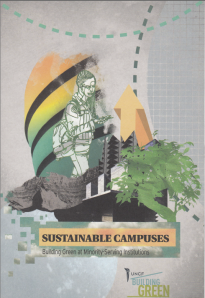Advancing Higher Education: ACUPCC Data Demonstrates Sustainability & Climate Progress
By Stephen Muzzy, Senior Associate, Second Nature
(This article appears in the June, 2012 issue of The ACUPCC Implementer)
The ACUPCC’s 5th year celebration also marks an important stage in the ongoing, unprecedented efforts of the network to publicly report on activities to eliminate operational greenhouse gas (GHG) emissions and to provide the education, research, and community engagement to enable the rest of society to do the same. Because of these tremendous efforts the ACUPCC Reporting System now includes 1585 GHG reports, 465 Climate Action Plans, and 240 Progress Reports on the Climate Action Plan! Public reporting by ACUPCC signatories demonstrates transparency and integrity for each institution’s commitment and contributes to the collective learning of the network and general public. The ACUPCC Reporting System also allows signatories to track, assess, and communicate progress to their campus community and beyond, demonstrating to prospective students, foundations, and potential private sector partners that their institution is serious and transparent about its commitment to climate change and sustainability. The individual efforts taken together are demonstrating impressive results and the growing impact of the network to prepare graduates and provide the necessary solutions for a sustainable future.
Making an Impact
The ACUPCC’s earliest signatories have had more than four years to assess, plan and begin implementing their Climate Action Plans allowing them to:
- Read more about Advancing Higher Education: ACUPCC Data Demonstrates Sustainability & Climate Progress
- Add new comment

 2012 Second Nature Climate Leadership Awards
2012 Second Nature Climate Leadership Awards
 The United Negro College Fund (
The United Negro College Fund (